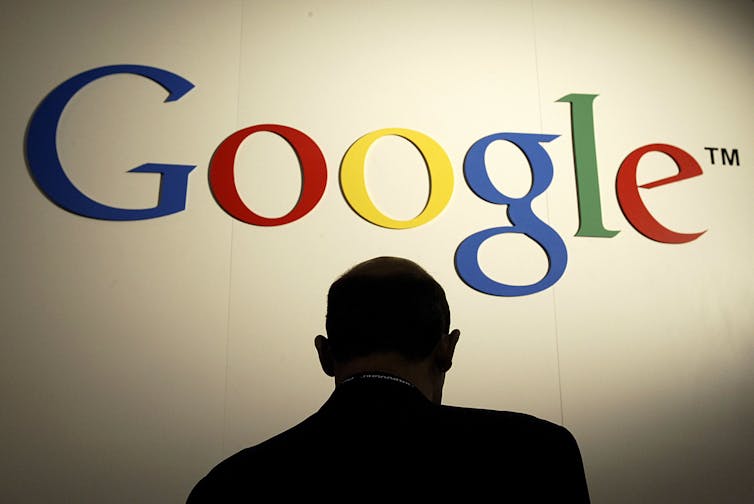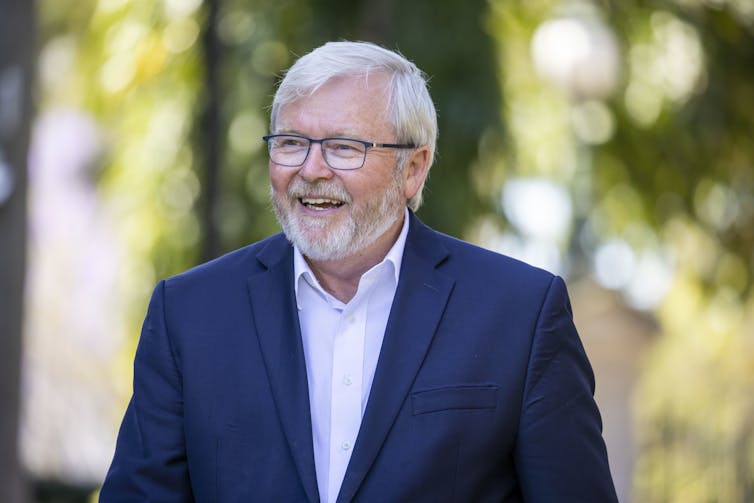Expect delays and power plays: Google and Facebook brace as news media bargaining code is set to become law
- Written by Tim Dwyer, Associate Professor, Department of Media and Communications, University of Sydney
The long-awaited mandatory code that will force Google and Facebook to pay Australian media companies for news content was finally unveiled yesterday.
The Treasury Laws Amendment Bill 2020 (news media and digital platforms mandatory bargaining code) will be introduced to parliament today, before being referred to a Senate committee.
Many of Australia’s news businesses have been on a hiding to nothing for more than a decade, as their revenue is undercut by the targeted advertising business model used by major digital platforms.
The most visible casualty has been public interest journalism — with the prospect of a well-informed citizenry on a slower, less obvious burn.
Against a backdrop of reports suggesting intense lobbying efforts by Facebook and Google against the new legislation, it appears some key concessions have been achieved by the platforms that weren’t present in the draft code.
Read more: No more negotiating: new rules could finally force Google and Facebook to pay for news
What’s changed in the revised code?
First, the revised code will now abide by an added “two-way value exchange” principle. This allows the monetary worth of traffic sent to news providers to be taken into account when determining the financial value of a particular news business’s content to the platforms.
How this will be calculated, however, will likely be an ongoing bone of contention for both parties.
A second major concession will see Facebook’s Instagram and Google’s YouTube exempted from the application of the new law. But the Treasurer will be able to add these (and other platforms) at a later date, should he deem it justified at the time.
A third concession is the halving of the 28-day notice period for the platforms to warn news websites of major changes to their ranking algorithms. These directly impact how news articles are displayed on Facebook’s Newsfeed and Google Search.
It seems the basic idea to “level the playing field” between platforms and news providers remains baked into the revised code, but only time will tell whether it works in practice.
 Following a year of discussion, Google last month struck a deal with French media in which the tech giant is expected to pay about €150 million (roughly A$245,003,250) over the next three years.
JAE C. HONG/AP
Following a year of discussion, Google last month struck a deal with French media in which the tech giant is expected to pay about €150 million (roughly A$245,003,250) over the next three years.
JAE C. HONG/AP
A related objective — to implement a process that sustains public interest journalism — remains equally tricky and may hinge on the revised code’s success.
But many will be pleased the public broadcasters ABC and SBS now fall within the code’s scope, too. Both will be financially compensated for news content along with their commercial rivals.
This may seem like a win, and it may be eventually, but for now it’s unclear how this will actually play out in terms of the government’s ongoing funding of these broadcasters.
Although conjecture at this stage, it may emerge in a forum such as Senate estimates that any compensation payments should be factored into overall funding calculations for the public broadcasters.
The arbitration model
One pivotal feature of the new legislation is it will address the entrenched power of the platforms by introducing a “final offer arbitration” model for price negotiations.
This process, overseen by the Australian Communications and Media Authority, will be mandatory when parties are unable to independently reach an agreement. It will likely be central to the new code’s success, or lack thereof.
Curiously, the revised code’s framework encourages deals to be struck outside of it. In these situations, key elements of commercial negotiations between the parties can be “turned off” with mutual agreement.
This appears to be a pragmatic recognition by the ACCC the code will never be able to control the realities of commercial media deal-making, which continue to be struck despite the code’s new bargaining marketplace.
However, where negotiations break down, news media businesses will be able to trigger the code’s provisions for meeting minimum standards.
This will cover advance notice of algorithmic changes and the requirement to engage in good faith bargaining for up to three months, before participating in the mandatory arbitration process.
Smaller news publishers will be able to bargain collectively, or accept “standard” offers from the platforms.
When one party fails to engage
The code has reasonably strong enforcement provisions in cases where there is a failure to negotiate in good faith, comply with an arbitration decision, avoid participation or engage in “retaliatory action against news media companies”.
The maximum penalty for a breach by Google or Facebook is the greater of either 10% of the platform’s annual Australian turnover, A$10 million, or three times the benefit obtained as a result of hosting the specific news business’s content.
Facebook and Google have put their previous threats to switch off local news content on hold until they see the final version of the code. For now, they appear to be engaging with the ACCC.
Read more: Facebook vs news: Australia wants to level the playing field, Facebook politely disagrees
We still need to tackle media concentration
As we await the final version of the code, the irony is not lost on those of us also waiting eagerly for events to unfold before another Senate committee on media pluralism.
The committee was set up in response to a petition started by former Prime Minister Kevin Rudd. Amassing more than 500,000 signatures, Rudd’s petition has called for a royal commission into the negative influence of News Corp’s power in Australia’s highly concentrated media landscape.
 Following the launch of the petition calling for a royal commission into the Murdoch media empire, former prime minister Kevin Rudd told media the empire had become an ‘arrogant cancer’ for Australia’s democracy.
Glenn Hunt/AAP
Following the launch of the petition calling for a royal commission into the Murdoch media empire, former prime minister Kevin Rudd told media the empire had become an ‘arrogant cancer’ for Australia’s democracy.
Glenn Hunt/AAP
A rich history of Australia’s parliamentary inquiries into the media indicates we can expect delays, power plays and ongoing lobbying in both these committees. And clearly there will be winners and losers in both.
Authors: Tim Dwyer, Associate Professor, Department of Media and Communications, University of Sydney





